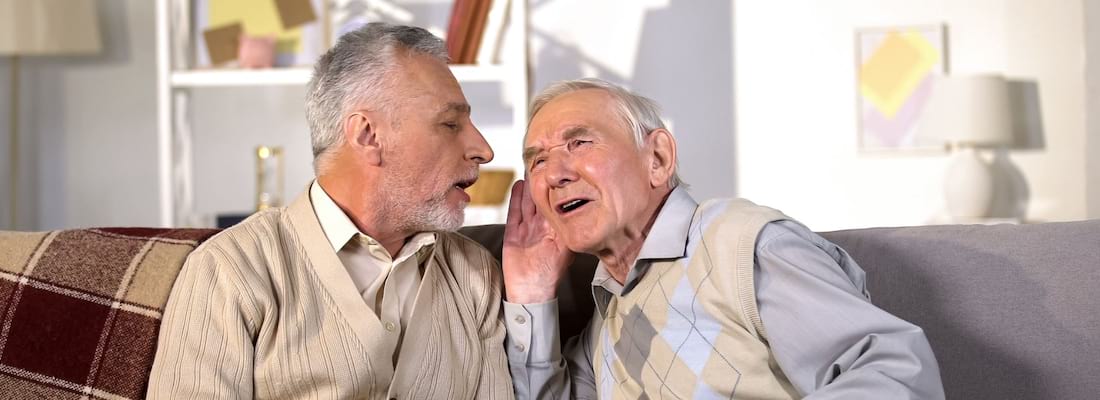Hearing Loss
Hearing loss is a common problem that can be caused by a variety of different reasons including prolonged loud noise, aging, illness, and hereditary conditions. Individuals suffering from hearing loss may find it difficult to socialise with friends and family. They may have trouble understanding others and hearing signals such as the doorbell or their phone ringing.
People who are suffering from hearing loss may begin to withdraw themselves from others because they feel embarrassed or frustrated when they cannot hear what the other person is saying. This can lead to feelings of isolation and loneliness. Often older people are labelled as confused or uncooperative when in fact they are just suffering from hearing loss. Hearing loss can affect much more than just your ability to hear. It is important to realise that your ability to hear affects almost every aspect of your life and by not recognising the importance of hearing and looking after your hearing it can result in a lowered quality of life.
There are three primary types of hearing loss. The first being Sensorineural hearing loss, this type of hearing loss occurs when the inner ear or where the hearing nerve becomes damaged. Conductive hearing loss occurs when the outer of middle ear is unable to carry the sound waves through to the inner ear. Finally mixed hearing loss is a combination of sensorineural and conductive hearing loss.
Effects of Hearing Loss
Some individuals may be suffering from hearing loss at an early stage and not realise it because the condition does not have a huge effect on their daily activities. However, hearing problems that are ignored or left untreated can get worse.
Some common signs of hearing loss include:
- - Having trouble hearing over the phone.
- - Watching TV at a higher-than-normal volume.
- - Finding it hard to follow conversations when there us background noise.
- - Assuming that others are mumbling.
- - Finding it hard to hear higher pitched noises.
Hearing loss is typically diagnosed several years after its onset, often having already led to negative consequences. Not only does hearing loss interfere with so many of life’s activities it can also result in unemployment. Hearing loss is often linked to falling and it can affect the brain when it becomes more difficult to process sounds. Hearing loss is linked to depression and the breakdown of relationships. Finally, when hearing loss is left untreated for a long period of time the cost of treatment significantly increases.
Early Detection
Hearing loss can occur at any age, but early detection means discovering the problem at the earliest possible point. People often delay the treatment of hearing loss because they are in denial, or they think their hearing will get better again. Hearing loss happens so gradually that in the beginning it may be hard to tell if you are experiencing any deterioration. At Audiology Medical Services we encourage regular hearing tests if you are experiencing any of the signs of hearing loss listed above. A regular hearing test without experiencing any symptoms of hearing loss can also be a great way to help you to identify any gradually developing problems before they significantly impact on your hearing and become more difficult to treat. Our hearing tests are quick, easy, and a non-invasive process. Our Audiologists believe that your ears should be treated as an investment and they are committed to offering each patient the highest standards of care, reliability and reassurance throughout their lifetime hearing journey, ultimately giving you back the gift of hearing.
AUDIOLOGY MEDICAL SERVICES
If you are concerned about yourself or a loved one’s hearing, we are here to help you through this challenging process and help limit the impact it makes on your life. To make an appointment to talk to one of Audiology Medical Services’ clinically trained professional audiologists, available at clinics nationwide, freephone 1800 501 501.









0 Comments
Add Comment